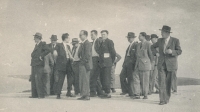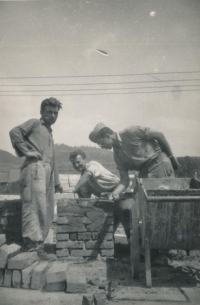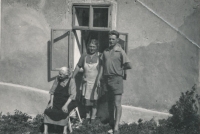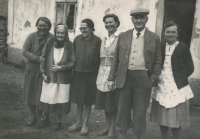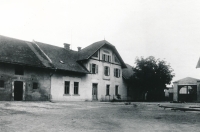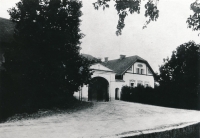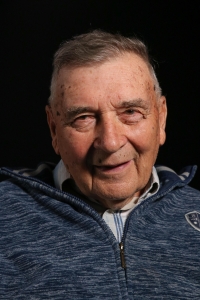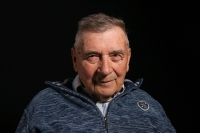The family was persecuted under both the Nazis and the Communists

Stáhnout obrázek
Josef Tichý was born on 24 March 1932 in Bezděkov on the estate of František and Emílie Tichý. His father was interned in the Nazi concentration camp Bernau am Chiemsee in 1943 for possession of an illegal reel of ‚churchills‘, and the family estate was also placed under forced administration. Josef himself was arrested in the spring of 1948 for copy-typing an anti-election leaflet. After two months of detention, he was released. In the same year, the regime confiscated all the farm equipment from the Tichý family and Josef‘s father was forced to hand over the farm to the state authorities. Two years later, he was arrested by State Security, and František Tichý was sentenced to seven years in prison for sabotage. Josef Tichý enlisted in the Auxiliary Technical Battalions in 1952. In the meantime, the rest of his family was forcibly displaced within the framework of Akce - K („kulak“) to the broken village of Roztyly, where there was no water or electricity at the time. Josef Tichý found a job in the freezing plants in Litoměřice, where he worked as a sales clerk. In 1989, he became a spokesman for the Civic Forum and, shortly after, deputy director. During the 1990s, the family tried more or less unsuccessfully to recover the confiscated property. In 2021, he and his wife, Jitka, lived in Žalhostice in the Ústí Region.
